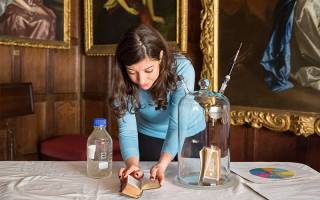This research aims to identify how and why the application of the community-based approach to heritage conservation could enhance social development.
Thesis title: Linking social development through heritage conservation: the case of contemporary Mayan communities in Yucatan, Mexico.
Primary supervisor: Dr. Kalliopi Fouseki
Secondary supervisor: Professor May Cassar
Starting date: January 2017
Project completion date: January 2020
In recent years the role of cultural heritage in development has been highlighted by the recognition of culture as the fourth pillar for human development. Several studies have identified that cultural activities can contribute to the creation of healthy living environments that positively affect people’s wellbeing and social development. An important contribution to this dialogue has come from the field of cultural heritage conservation. Heritage projects elsewhere have reached deeper levels of collaboration with local societies, contributing to the understanding of the relationship between heritage conservation and the conservation of community life. This has led to research investigating the question of how to analyse and measure the impact of heritage conservation.
Taking these points into consideration, my research aims to identify how and why the application of the community-based approach to heritage conservation could enhance social development. To do this I intend to assess the social impact of community-based conservation projects using case studies from communities in Yucatan, Mexico. An important part of this research is to develop and implement a strategy for measuring impact based on social indicators, and to determine whether community-based conservation might be a catalyst for social development. Although I propose to investigate the degree to which current Mexican policies regarding community-based conservation have impacted upon community development, the practical outcome of this project will be the methodology itself, which could be used to assess not only the Mexican context, but also the social performance of conservation projects elsewhere.
 Close
Close


